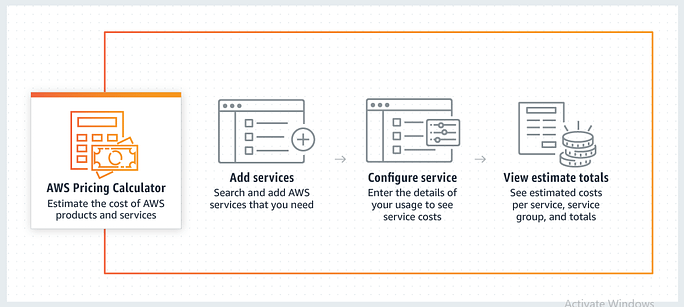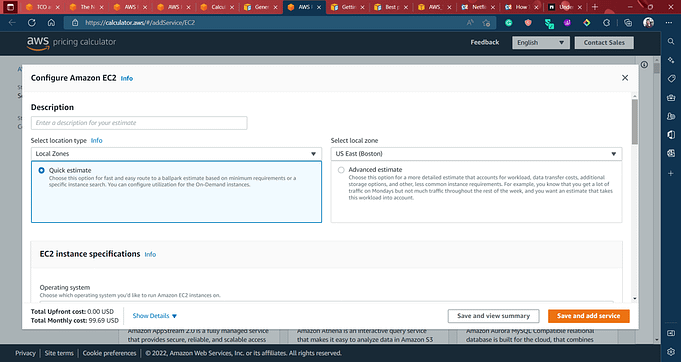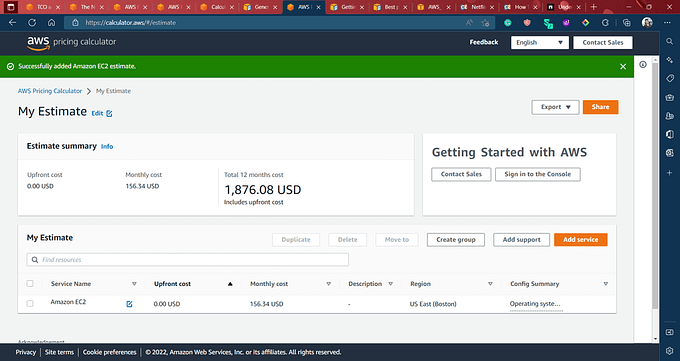5 Benefits of Data Lakes for Small Businesses
Data is becoming one of the most valuable business assets for small and medium-sized businesses, but only if you know how to use it. According to Forbes, 95% of businesses struggle with unstructured data, and Forrester reports that 73% of enterprise data goes unused for analytics. It's no wonder that 94% of leaders say they need to extract more value from the data they already have.
Data is becoming one of the most valuable business assets for small and medium-sized businesses, but only if you know how to use it.
According to Forbes, 95% of businesses struggle with unstructured data, and Forrester reports that 73% of enterprise data goes unused for analytics. It's no wonder that 94% of leaders say they need to extract more value from the data they already have.
Data lakes offer a solution to this. They centralize all your business data, regardless of format, into one scalable, accessible storage layer. Whether it's CRM records, sales reports, customer feedback, or even social media mentions, data lakes turn scattered information into a powerful decision-making tool.
What is a Data Lake?
A data lake is a central repository that stores vast amounts of raw data, both structured (CRM records, sales figures, or Excel spreadsheets) and unstructured (emails, PDFs, images, or social media posts). Unlike traditional databases, it doesn't require data to be cleaned or organized before storage, saving time and costs.
How Does a Data Lake Work?

- Data Ingestion: Your raw data (structured and unstructured) is pulled in from multiple sources. These could be your website, POS system, social media, or third-party APIs.
- Storage in Raw Format: This data is stored as-is in the data lake, without the need for immediate cleaning or formatting. Think of it as dumping everything into one central, scalable pool, usually in cloud platforms like AWS S3.
- Data Cataloging & Indexing: Metadata (data about your data) is created to help organize and classify everything. This step ensures that users can easily search and retrieve relevant datasets when needed.
- Data Processing & Transformation: When you’re ready to analyze, tools like AWS Glue or Amazon EMR process and transform the data into usable formats, cleaning, filtering, or reshaping it based on your specific needs.
- Analytics & Insights: Once processed, the data is fed into analytics tools (like Amazon QuickSight or Power BI) for dashboards, reports, or machine learning models, powering smarter, data-driven decisions.
- Access Control & Governance: Throughout, access is managed with permission settings and compliance protocols, so only the right people can access the right data, keeping everything secure and audit-ready.
As small businesses look to manage these growing volumes of data, two solutions often come up—data lakes and data warehouses. While both store data, they serve different purposes. Understanding these differences upfront is important for your business needs and future scalability.
How to Differentiate a Data Lake from a Data Warehouse?
A data warehouse stores data that is highly organized and structured for quick analysis. It requires predefined schemas, meaning you must know in advance how the data will be used before storing it.
On the other hand, a data lake stores data in its raw, unstructured format, offering much more flexibility. This raw data can later be transformed and used for various purposes, such as machine learning or business intelligence.
The ability to store data without needing to define its structure upfront makes a data lake a more adaptable solution for small businesses that handle diverse types of data.
5 Key Benefits of Data Lakes for SMBs

When it comes to managing data, small businesses need solutions that are both affordable and flexible. A data lake provides just that, offering significant advantages to SMBs. Here are the key benefits that make data lakes a valuable investment for your business:
1. Cost Efficiency
One of the major advantages of data lakes is their cost-efficiency. Data lakes allow you to store raw, unprocessed data, eliminating the need for expensive data transformation upfront. This helps reduce both storage and ongoing maintenance costs.
Cloud-native platforms like Amazon S3, often used in data lake setups, follow pay-as-you-go pricing, charging as little as $0.023 per GB per month for standard storage. Azure Data Lake Storage offers similar models at around $0.03 per GB per month.
With no upfront infrastructure costs, SMBs can build scalable, high-performance data lakes while keeping budgets predictable. Companies like Cloudtech help SMBs make the most of this model, architecting efficient data lakes on AWS that scale with your business and avoid unnecessary spend.
2. Scalability
As your business grows, so does your data. A data lake for small businesses can scale easily to accommodate large volumes of data without a complete infrastructure overhaul. You can add more storage as needed without worrying about complex data migrations or reconfigurations, making it ideal for growing businesses with expanding data needs.
3. Flexibility
Data lakes support a wide variety of data types, including structured, semi-structured, and unstructured data. This means you can store everything from transactional data to text files, emails, and social media content all in one place. With this flexibility, you can apply diverse analytics and reporting techniques, allowing you to uncover insights from every corner of your business.
4. Improved Data Accessibility
With a data lake, all your data is stored in one central location, making it easy to access and manage. Whether you're analyzing sales performance, customer feedback, or operational data, you can retrieve all the information you need without hunting through different systems or platforms. This ease of access can significantly improve decision-making and streamline your business processes.
5. Future-Proofing
A data lake for small businesses doesn't just solve today's data management challenges – it prepares you for the future. With the ability to integrate advanced technologies like AI, machine learning, and predictive analytics, a data lake ensures your business is ready for tomorrow's innovations. As you evolve, your data lake can adapt to your changing needs, keeping you ahead of the curve.
With these benefits, it’s no surprise that more SMBs are investing in data lakes to stay agile, competitive, and data-driven. While a data lake offers tremendous potential for small businesses, it also presents certain challenges that need careful consideration.
What are the Challenges of Data Lakes?

The complexity of managing large volumes of data, ensuring data quality, maintaining security, and meeting compliance standards can overwhelm SMBs without the right approach. These factors are critical to unlocking the full value of a data lake, and neglecting them can result in ineffective data management, increased risks, and missed opportunities.
- Data Governance: Organizing and cataloguing your data is crucial for maintaining its quality and accessibility. Without proper management, data can become difficult to analyze and prone to errors.
- Security and Compliance: With sensitive data often stored in data lakes, strong security measures like encryption and access control are essential. Regular audits are also needed to ensure compliance with industry regulations.
- Assessing Data Needs: Before adopting a data lake, evaluate the volume and variety of data your business generates. A well-aligned data lake will support long-term growth and scalability.
To address these challenges, selecting the right tools and technologies is essential for SMBs to effectively manage and maximize the potential of their data lake.
Tools and Technologies for Data Lakes in SMBs

To make the most of a data lake, small businesses need the right tools and technologies to simplify data management and drive valuable insights. Here are some key tools that can support your data lake strategy:
- Cloud-Based Solutions: Platforms like AWS offer affordable, scalable cloud solutions for small businesses. These platforms allow you to store and manage large amounts of data with flexibility without the need for physical infrastructure. They also ensure security and compliance to protect sensitive data.
- Data Orchestration Tools: Tools like AWS Glue and Amazon EMR help streamline data management by integrating, cleaning, and transforming data from multiple sources. These user-friendly tools save time on manual processes and ensure your data is ready for analysis.
But tools alone aren’t enough. The data lake also needs to work in harmony with the systems you already use.
Integration with Existing Systems
One of the biggest advantages of a data lake for small businesses is its ability to integrate seamlessly with existing systems. Data lakes can easily connect with web APIs, relational databases, and other tools your business already uses. This integration enables a smooth data flow across systems, ensuring consistency and real-time data access.
With partners like Cloudtech, SMBs can ensure their data lake integrates smoothly with existing business systems, avoiding silos and unlocking unified, real-time data access. Whether you’re using CRM software, marketing tools, or other business applications, a data lake can centralize and streamline your data management.
Conclusion
Handling data efficiently is often a struggle for small businesses, especially when it's scattered across different systems. Without a unified system, accessing and making sense of that data becomes time-consuming and challenging. A data lake for small businesses solves this problem by centralizing your data, making it easier to analyze and use for better decision-making. This approach can help you identify trends, improve operations, and ultimately save time and money.
Cloudtech specializes in helping small businesses manage data more effectively with tailored data lake solutions. Their team works closely with you to create a system that streamlines data storage, access, and analysis, driving better insights and business growth.
Ready to simplify your data management? Reach out to Cloudtech today and discover how their data lake solutions can support your business goals.
FAQs
- How does a data lake improve collaboration within my business?
A data lake centralizes data from various departments, making it easier for teams across your business to access and collaborate on insights. With all your data in one place, your employees can make informed decisions, leading to better teamwork and streamlined processes.
- What are the security risks of using a data lake, and how can I mitigate them?
Data lakes store large volumes of sensitive data, which can pose security risks. To mitigate these, ensure robust encryption, access controls, and regular audits are in place. Working with cloud providers that offer built-in security features can also help protect your data.
- Can a data lake help with data privacy compliance?
Yes, a data lake can be configured to meet various data privacy regulations, such as GDPR and CCPA. With proper governance and security protocols, SMBs can ensure that sensitive data is handled and stored in compliance with relevant laws.
- How long does it take to implement a data lake for a small business?
The time required to implement a data lake depends on the complexity of your data and existing systems. With cloud-based solutions and proper planning, small businesses can typically implement a data lake in a few months, making it a scalable, long-term solution.

Get started on your cloud modernization journey today!
Let Cloudtech build a modern AWS infrastructure that’s right for your business.



%2520dark.jpeg)


